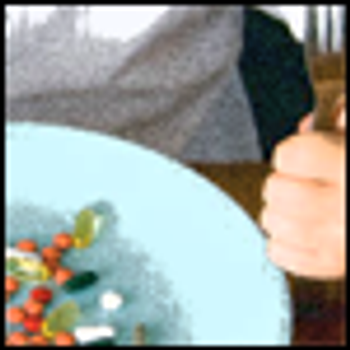
We can take one further step toward finding common ground in my ongoing debate with Drs Pies and Zisook.


We can take one further step toward finding common ground in my ongoing debate with Drs Pies and Zisook.

There are very real concerns about the miners’ mental well-being. Chile’s Health Minister reported that five of the men were not eating properly and refused to be filmed. In the meantime, a team of nutritionists and psychologists have been assembled to monitor their physical and mental states.

Which antidepressants are associated with the highest rates of sexual dysfunction in patients treated for depression? This and more in this week's quiz.

My colleague Allen Frances is rightly concerned with the risk of over-calling normal grief as major depression - - that is, the risk of "false positives" - - if the DSM-IV "bereavement exclusion" is dropped in the DSM-5 while the 2-week minimum duration criterion is retained.

Before jumping the gun to a premature and potentially harmful diagnosis, why not watchfully wait a few more weeks to determine if the grief is severe and enduring enough to warrant the label of mental disorder.

In a recent study of 2 randomized groups of healthy participants, Research confirmed what many have suspected-that yoga has positive effects on mood over other physical activities.

Screening for Depression in Clinical Practice, which reviews the current body of knowledge on mental health screening in the medical setting, is a reference text written primarily for the consultation-liaison specialist, but it will be of use to the general psychiatrist and the interested primary care physician or medical specialist.

The discipline of evolutionary psychology views modern human behaviors as products of natural selection that acted on the psychological traits of our ancestors. A subdiscipline, evolutionary psychiatry, tries to find evolutionary explanations for mental disorders.

A recent story in the Atlantic magazine, The End of Men, explores gender issues in the 21st century. Women now make up the majority of the workforce, and women outnumber men 3 to 2 in getting a college degree. Is postindustrial society more suited to women?

Efficacy and safety of bupropion and SSRIs in comorbid depression and restless legs syndrome? Which psychiatric scale has proven useful for tracking depression when Electroconvulsive Therapy is involved? These questions and more in this week's Mine Your Mind quiz.

Given a choice between talk therapy and taking an antidepressant, most Americans would choose the pill. And--if given a choice among the various types of antidepressants--most would prefer an SSRI.

A recent meta-analysis showed that diagnoses generated from clinical evaluations often do not agree with the results of structured and semistructured interviews-together called standardized diagnostic interviews (SDIs).

The discipline of evolutionary psychology views modern human behaviors as products of natural selection that acted on the psychological traits of our ancestors. A subdiscipline, evolutionary psychiatry tries to find evolutionary explanations for mental disorders.

How regularly do you use outcome measures to assess how well your patients with depression are doing? Research suggests many psychiatrists avoid such measures, believing that they are aren’t trained to use them; that they take too much time; or that they aren’t clinically helpful.1

Transcranial magnetic stimulation (TMS) is noninvasive focused brain stimulation that uses pulsed magnetic fields. The underlying mechanism depends on the principle of electromagnetic induction, the process (discovered by Faraday in 1839) by which electrical energy is converted into a magnetic field and vice versa.1

This is the second installment of a new series in which clinically relevant research is briefly discussed and, perhaps more important, a few tips on how to read and interpret research studies are presented. Your feedback, suggestions, and questions are eagerly solicited at rajnish.mago@jefferson.edu.

Insurance restrictions sometimes make for strange bedfellows. My story begins with a phone call from a man about to lose his job. He said that he had been placed on probation and was about to be fired. He asked if he could see me. We met the following day.

Pilots will no longer be banned from flying if they are taking an SSRI antidepressant.

Electroconvulsive therapy (ECT) devices are undergoing FDA scrutiny and could become subject to new requirements and restrictions that affect their use by psychiatrists. The FDA is considering whether to keep ECT devices in their current Class III category or drop them to Class II.

It is safe to say that few authors of mental health–related books would introduce themselves by presenting these credentials:

Writer Jonah Lehrer caused quite a stir with his recent article in the New York Times Magazine, with the unfortunate title, “Depression’s Upside.” I have a detailed rejoinder to this misleading article posted on the Psychcentral website.

Although a large body of research has documented the risk factors for and negative effects of depression in mothers, little is known about depression in expectant or new fathers.

The term “evidence” has become about as controversial as the word “unconscious” had been in its Freudian heyday, or as the term “proletariat” was in another arena.

What do we know about circadian rhythms and melatonin? And what further lessons do we need about circadian rhythms, light exposure, and melatonin to help our patients with disturbed sleep/wake cycles?

For both depression and anxiety disorders in youths, there is increasing evidence of clinical benefit from cognitive-behavioral therapy (CBT).